Who Really Was the Father of Aspirin
 Who Is Robert Oppenheimer - Father Of Atomic Bomb: Biography, Personal Life and Achievements Who Is Robert Oppenheimer - Father Of Atomic Bomb: Biography, Personal Life and Achievements |
 Who Is Samuel Altman - Father of ChatGPT: Biography, Talent and Net Worth Who Is Samuel Altman - Father of ChatGPT: Biography, Talent and Net Worth |
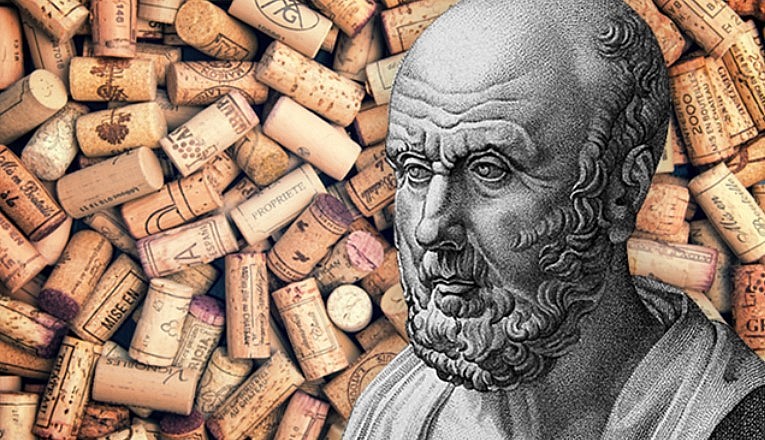 |
Misleading Documents
Aspirin is relatively safe for the human body because it can be completely produced from natural ingredients. Salicin, found in many popular European plants such as willow leaves and nectarine, is a key ingredient in aspirin. Ignoring medical expertise, as with many other mystical stories, the origin of aspirin has long been shrouded in myths about ancient medicine.
From ancient oral stories to the rise of social networks and the Internet, we can read a few stories that demonstrate that the father of aspirin is also the father of medicine, Hippocrates. Countless stories have been told about how Hippocrates and his students taught the ancient Greeks to use willow leaves to relieve pain in everyday life, inspiring subsequent generations to discover aspirin. But is this true?
Archaeologists discovered that Hippocrates said almost nothing about the medicinal properties of willow leaves and peach needles while studying the rare ancient documents that have survived to this day. However, the myth that Hippocrates is the true father of aspirin persists today as an argument that ancient medicine was far more advanced than what we now know. Hippocrates uses willow leaves instead of aspirin to treat common illnesses in very simple ways.
More specifically, some stories claim that Hippocrates included willow leaves in prescriptions for women suffering from headaches at work. Others claim he drank willow leaf tea every day to relieve common muscle pain, while others believe Hippocrates advised people to chew willow leaves to relieve pain. In fact, Hippocrates' writings on the uses of willow leaves mean only one thing, and it has nothing to do with pain relief. He advised pregnant women to smoke willow leaves to reduce their risk of miscarriage.
In addition to Hippocrates' handwritten documents, some ancient physicians used willow stems and leaves to make medicine. However, no one mentioned how to use willow leaves to relieve pain simply by chewing or extracting them, as oral stories suggest. More importantly, the herb mentioned by Hippocrates is the white willow tree, which contains much less salicin than other plants in the same family.
Furthermore, modern scientists have discovered that aspirin only has an effect on the person taking it when the salicin content reaches approximately 60-120mg per dose. Receiving such a large amount of salicin cannot be accomplished through simple means such as chewing willow leaves directly or drinking tea made from willow leaves. Furthermore, the use of herbs like those spread by Hippocrates' imposters can be more harmful than beneficial due to the side effects of tannins, a poison found in willow leaves.
The white willow tree mentioned in Hippocrates' documents has a distinct bitter taste due to tannin. When this substance enters the human body via the stomach, it causes severe abdominal pain. That also means that those who want to try pain relief with aspirin, as per Hippocrates impersonators, will writhe in stomach pain with no relief from their symptoms.
To limit the side effects of white willow, an ancient Roman scholar named Dioscorides wrote instructions for use based on his own preparation and testing. According to Dioscorides, people can reduce the harmful effects of stomach pain-causing willow leaves by burning them into ash, mixing them with vinegar, and applying them to the body's calluses. This method allows the calluses to gradually fade and disappear over time without leaving any marks.
However, a closer look at the scientific evidence reveals that even Dioscorides was perplexed about the effects of willow leaves on the human body. The acidity of vinegar, not the salicin in willow leaves, causes calluses to fade completely. In other words, Hippocrates and his contemporaries' ancient medical documents on how to treat diseases with willow leaves were extremely inaccurate. As a result, it is difficult to confirm that Hippocrates is the father of the pain reliever aspirin, as stories have circulated for many years.
Who impersonated Hippocrates?
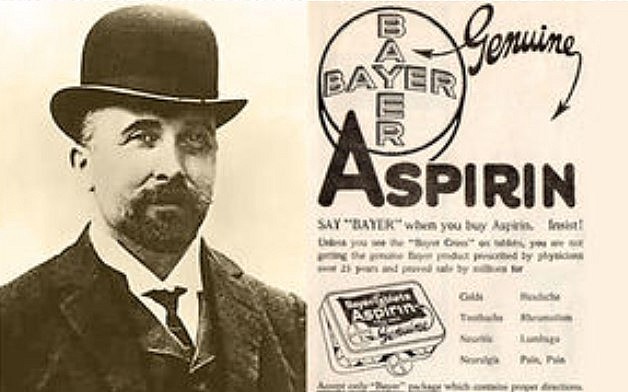 |
| Reverend Edward Stone is the true father of Aspirin |
Based on the evidence presented above, we can conclude that Hippocrates had no specific method for creating a drug similar to modern-day aspirin. So, who impersonated Hippocrates to spread the myth of the magical effects of chewing willow leaves, as well as the ancient Greek physician known as the father of aspirin? It's a long story that began in the 18th century with an English missionary named Reverend Edward Stone.
Around 1757, Stone tried chewing white willow leaves and discovered they were extremely bitter. Stone came up with the idea of using this plant to make medicine after thinking of "a bitter medicine, a bad medicine". Thinking about it, he gathered a kilo of willow leaves, dried them, ground them into powder, boiled them with hot water, and steamed them every 4 hours during the day to relieve his fever. This unintentionally increases and concentrates the salicin content of willow leaves, directly affecting Stone's body.
Stone conducted direct experiments on himself before writing a report on the pain-relieving effects of willow leaves and sending it to the British Royal Academy of Sciences. He is credited with being the first to discover the use of salicin to create aspirin as we know it today. However, nearly a century after Stone's research, two Italian scholars, Brugnatelli and Fontana, successfully extracted salicin from willow leaves in 1826.
Since Brugnatelli and Fontana's discovery, research into salicin's applications has accelerated at breakneck speed. By 1828, German pharmacist Johann Andreas Buchner had increased the yield of salicin extract from willow leaves and given the substance an official name. The name "salicin" is derived from the Latin word "salix", which means willow.
By the end of the nineteenth century, German researcher Felix Hoffmann had successfully converted salicin into salicylic acid, which is what we know today as aspirin. He was also the first to mass produce this painkiller, bringing it to market with a patent in his name in 1899. More interestingly, Hoffmann's research was sponsored by the same company. Bayer Pharmaceutical Group is also the primary sponsor of the Bayer Leverkusen football team.
So, why do false oral stories about Hippocrates being the father of aspirin continue to spread today? The reason for this is that we have a tendency to believe the stories we read, especially when they contain mystical elements. "Hippocrates invented aspirin thousands of years before modern science" would be far more impressive than a mundane story. However, this is also the reason that misunderstandings persist over time.
Hippocrates' contributions to medicine are always recognized by posterity, but that does not mean we can misinterpret the works he left behind today. Salicin is found in willow leaves and is used as a precursor to the production of aspirin, which helps humans relieve pain. That is also why we sometimes mistake Hippocrates for inventing aspirin through simple methods that few people anticipate.
Fortunately, aside from mythical false stories, science still recognizes factual information about the origins of aspirin. This aids in accurately identifying the father of this drug, which contributes to its future improvement through mass production methods. So, whenever we take aspirin to relieve pain, we should thank Hoffmann and colleagues rather than Hippocrates.
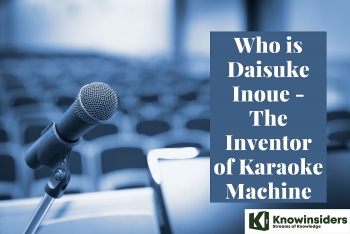 Who is Daisuke Inoue - The Inventor of Karaoke Machine Who is Daisuke Inoue - The Inventor of Karaoke Machine Daisuke Inoue is a Japanese businessman best known as the inventor of the karaoke machine. Keep reading to know about his biography, life and more. |
 Who Is Samuel Altman - Father of ChatGPT: Biography, Talent and Net Worth Who Is Samuel Altman - Father of ChatGPT: Biography, Talent and Net Worth Who is the person behind AI Chat GPT-the special weapon that Microsoft has used to compete with Google? |
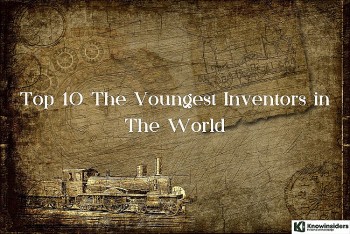 Top 10 The Youngest Inventors in The World Top 10 The Youngest Inventors in The World Most inventors listed below announced their inventions when they were still at school. Although they are still young, their creations have brought joy as well ... |
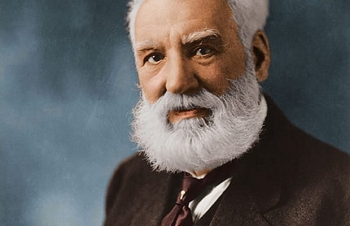 The First Telephone in the World: Who is Inventor and Facts The First Telephone in the World: Who is Inventor and Facts Have you ever wonder what is the history of the first telephone in the world. If your answer is yes, you landed on the ... |























